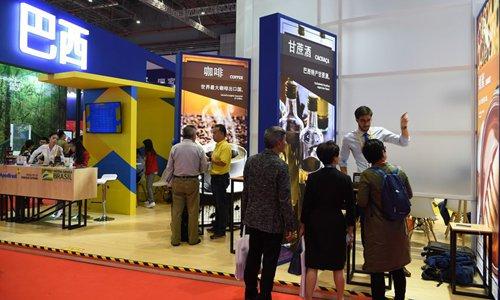SAO PAULO, July 5 (Xinhua) -- The Chinese government has been acting as "a beacon" lighting the way by establishing "a broad network of international treaties" that avoid double taxation and allow its companies and individuals to enjoy a paved way for business development and generate greater investment flow internationally, observed a Brazilian expert.
Over the past decade, China transformed itself from "the world's factory" to "a protagonist" on the global economic stage, which "generates an expansion far beyond its boarder" that "requires a regulatory environment supports and allows such a growth," said Evandro Menezes de Carvalho, head of the Center for Brazil-China Studies of the Getulio Vargas Foundation School of Law in Brazil, in a recent interview with Xinhua.
Under such circumstances, China initiated a reform internally to modernize the taxation on consumption by replacing the Business Tax with the Value-added Tax (VAT), in a bid to provide a more dynamic domestic business environment that encourages the exports, overseas investments, merger and acquisition, and the flow of people and capital.
"China's VAT reform accompanies the internal transition from a production-base economy to a service-focused economy," remarked Carvalho.
Internationally, China has already a long list of agreements to avoid double taxation, which "have enabled, serve and will continue to work as a springboard for the expansion of its companies worldwide and allow exports of its products and technologies to reach new consumer markets," explained the expert.
He named the Belt and Road Initiative and the BRICS as examples that receive supports from such a network of agreements and treaties.
"In practice, they allow a greater flow of investment and services among countries as they avoid tax inefficiency, as they serve as important tools to support and facilitate bilateral or multilateral business relations and allow the generation of investment and income, the expansion of trade networks, new infrastructure projects, factories, access to technologies, in spite of geographical barriers," Carvalho elaborated.
"The evolution and prominence of China in the global scenario is driven by the efficient and dynamic business environment, the development of new technologies, creation of new companies and new services," he summarized.
(Contributed by Luo Jingjing, edited by Bao Nuomin with Xinhua Silk Road, baonuomin@xinhua.org)




 A single purchase
A single purchase









